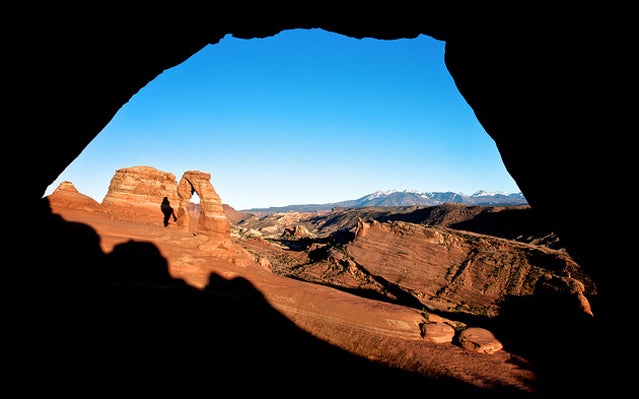
Last year, as part of
his Call to Action plan to revise and improve the way our national parks are
managed, National Park Service Director Jon Jarvis asked a committee of
scientists and advisers to the NPS to revisit and rewrite a 1963 report called “Wildlife Management in the National Parks.”
Though the 1963
report, penned by the son of renowned conservationist Aldo Leopold, was
groundbreaking as a contribution to wildlife management practices, it was
written well before the park system had to address and adopt to climate change,
and well before the system gained most of the cultural artifacts and memorials
it now holds. Therefore, the report needed a major makeover.
The revised report,
written with the help of an 11-member
committee that includes a Nobel Laureate and two Presidential Medal of Science
recipients, was released on Friday and includes broad recommendations on how
the NPS should go about protecting park ecosystems and the cultural treasures
they contain. Also published last week was a Washington Post news story entitled “,” in which Juliet Eilperin described the
impact that fiscal belt-tightening has had on the park service in recent years
and how the proposed 2013 budget would only worsen the park’s economic health.
Some say more cuts will precipitate park closures.
I asked Gary
Machlis, Jarvis' science adviser, who acted as a liaison
between the committee and the NPS, how the new report, “Revisiting Leopold: Resource Stewardship in
the National Parks,” gets square with the park’s economic landscape. How can
the park service react to things such as rising sea levels and unhealthy
forests if its funding is dwindling?
“In the
recommendations they focus both on what is visionary and what is practical,”
Machlis says. “They see that these are not costs; they are investments. So the
question becomes not what does it cost, but what is the return on investment in
doing so?”
Fine, but it all
still falls to the bottom line. The committee wasn’t tasked with balancing the
books, so unsurprisingly the report is short on specifics when it comes to
deploying its resource management recommendations. Still, it does at least
acknowledge the current (and likely, future) economic constraints and urges the
NPS to use its resources wisely.
“The committee
said that park service needs cohesive and coherent technology innovation policy
so that available technology that’s already on shelf, that is at the cutting
edge, could be employed without huge expense,” says Machlis. “This can mean
using better batteries, better fuel cells, so it’s not particularly expensive,
especially when you consider this as a way to augment existing staff. A good [remote
sensing] monitoring system is like adding hundreds of eyes, ears, noses, to figure
out what is going on in parks.”
Another way to
improve resource management on the cheap is to enlist the help of citizen
scientists, especially young ones, who the park might also be able to groom
into future rangers, says Machlis.
The report also
urges the NPS to be nimble and avoid “unnecessary bureaucracy.” It suggests
that NPS should look beyond its boundaries for other agencies, academic
institutions and individuals that are willing to act as advisers and park
stewards.
Making policy decisions based on the best available science
is a key tenant of the committee’s recommendations and it’s one of the reasons
Jim Nations, vice president of the Center for the State of the Parks, part
of the , calls
the “Revisiting Leopold” report “brilliant.”
“����’s
exactly the set of recommendations the park service needs,” he says. He hails
the committee’s urging that the NPS
create a science advisory board that will provide “advice and guidance on
science policy, priorities and controversies, and advocate on behalf of science
within the agency.”
As for the art and science of federal budgets, Nations stressed what
is at stake if the NPS continues to be underfunded. “These are the
people we’ve asked to take care of our most valuable ecosystems, the lifeboats
for our species and the landscapes of our cultural heritage,” he says. “If we
are going to ask them to do that, we need to give them the funds they need.”
Indeed, the stakes seem higher than they were back in 1963. The
borders of our national parks cannot preserve the lands they circle. “Within
many units of the National Park System we're already seeing the effects of
climate change,” Jarvis
told �����ԹϺ��� earlier this year.
“Environmental changes confronting the
National Park System are widespread, complex, accelerating and volatile,” according to the opening pages of the new report. “These include
biodiversity loss, climate change, habitat fragmentation, land use change,
groundwater removal, invasive species, over development and air, noise and light
pollution.” Yikes.
But Machlis tries
to put
the struggles in perspective: “When the
original report was written in 1963, they said ‘this will not be easy, but we
have to do it.’ ����’s the same this time.”
—Mary Catherine O'Connor